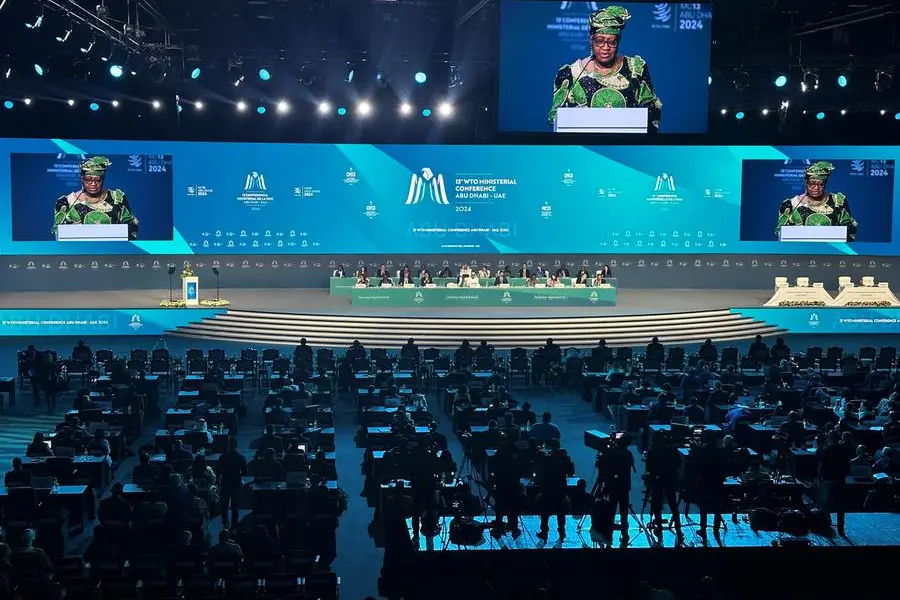PHOTO
The director general of the World Trade Organization (WTO) has urged countries to ratify its fisheries subsidies agreement to make it the fastest ever entering into an agreement by the body, and urged participating ministers to work ‘harder, faster and work together’.
Ngozi Okonjo-Iweala said 70 members will have ratified it by the end of the organisation’s 13th Ministerial Conference (MC13) being held in Abu Dhabi, with 40 more to go.
The agreement helps prevent subsidies from creating overfishing and overcapacity issues.
“Those members yet to ratify you know who you are I hope you can work fast to help us ratify by 13th June,” she said.
“When we succeed it will be the fastest entering into force of any WTO agreement and I know we will.”
Okonjo-Iweala told ministers that geopolitical uncertainty was worsening with conflicts spreading including in the Middle East, as well as away from the headlines in parts of Africa and the rest of the Arab World.
“We need to work harder, smarter and work together to deliver meaningful outcomes for all our citizens through trade,” she said.
She said: “The UAE has set the stage for a successful conference; it is now your turn to reach to build on it and reach consensus on MC13 decisions and declarations that will help make a brighter future for global trade and an economy that works for everyone.”
The body welcomed new members, Timor Leste, Southeast Asia and Comoros, East Africa, taking the total number of members to 166, with 22 more attending the conference as observers, considering membership, including a sizeable contingent from the Arab World, Okonjo-Iweala added.
Addressing the fact that 2024 will be one of the busiest ever years for elections, she said: “People everywhere are feeling anxious about the future and this will be shown at the ballot box when more than 60 countries, home to half the world’s population go to the polls.”
Growing wealth gap
The global COVID-19 pandemic ended a 25-year-long trend of poorer countries narrowing the gap separating them from rich ones, she said.
“Several in Africa are already well into a lost decade and are in danger of falling further back.”
Global goods and services trade remain at near records highs, but it would be ‘dangerously naïve’ to take trade growth for granted, she said, citing global merchandise trade falling short of the 0.8% projected in October, with it also likely undershoot the 3.3% projected for 2024.
“Higher prices for food, energy fertilisers and other essentials continue to weigh on purchasing power fuelling political frustrations.”
Shipping disruptions like those affecting the Red Sea and the Panama Canal are a new source of delays and inflationary pressure, offering a real time reminder of the risk to global trade and output by security problems and the climate crisis, she said.
(Reporting by Imogen Lillywhite; editing by Brinda Darasha)





















